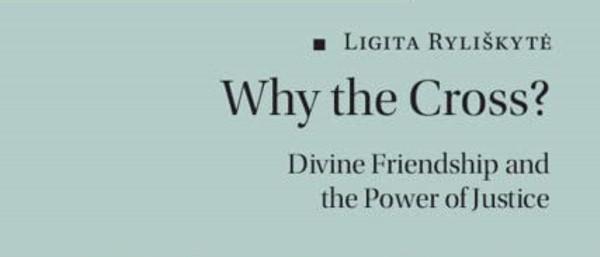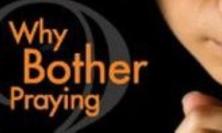This remarkable work of scholarship fully deserved the accolade of being named Theological Book of the Year by the European Society for Catholic Theology in 2023. It addresses the central Christian mystery of the atonement, and its treatment by some of our greatest theologians, in such a way as to offer the contemporary secular world ‘news’ that is truly ‘good’. It provides a theological foundation for evangelisation in the fullest sense, because it offers solid grounds for hope, at a time in our history when hope is in short supply.
Ryliskyte’s study of ‘the justice of the cross’ turns first to Augustine. In De Trinitate, divine justice is shown to be not retributive , nor transactional, nor even distributive, but to be ordered loving. The just response to disordered human love is therefore not coercion, but a reordering of love. God redeems the world by subordinating power to justice, and, because justice is never separated from charity, salvation is an attunement of human desires to God’s, in Christ’s self-giving love. In The City of God, Christ’s sacrifice transforms human beings from lovers of power over justice (might over right) to lovers of justice over power. This transformation is examined by Augustine in a manner that appreciates the socio-political and historical aspects of human living, even if he prizes that which is unchanging in society and history.
The next step is to investigate Aquinas’s integration of Augustine’s achievement into the post-Anselmian world, in which there is a new focus on the soul’s personal relation with God. Arguing that the cross – conveniens not necessaria – is an exercise of reconciling, not retributive, justice, Aquinas explains the relationship between the reintegration of just order (justice) and the restoration of the individual’s relationship with God (charity). Ryliskyte sees the will as the bridge between these two recoveries – charity leads to sorrow and elicits repentance that moves the will to seek amendment. Christ embraces the cross as an act of antecedent friendship, vicariously amending for the wrong-doing of his friend. The context is God’s immutable love, Christ’s willingness to be conformed to that love, and, by grace, the sinner’s willingness to be assimilated to Christ in charity.
Lonergan develops these positions within the context of a historically conscious interiority, history being understood as a compound of progress, decline and recovery. In a world where sin is a fact, accepting Christ’s friendship shows itself in amending for sin and returning good for evil. Retributive justice risks provoking further violence. Charity alone wipes the slate clean. Resisting evil by love requires intellectual, moral, and religious conversion, the always-precarious withdrawal from inauthenticity to authenticity.
Ryliskyte then proposes re-contextualising this authenticity, interpreting it as human responsibility in and for history as a dynamic process, making justice possible among sinners. Christ’s self-sacrifice changes the probability of an upward, but indeterminately directed, world process – a new finality in history becomes possible, historically realised in the whole Christ, head and members, whenever the diffusion of Christ-inspired forgiveness and friendship take place. The enemies-made-friends of God participate in the relational love of the Trinity and yield a complex of transformed interpersonal relationships and cooperation, in which the possibility of justice among sinners is realised in and through the human good that is social and political order.
A particular strength of the book is its engagement with secularity, using the work of contemporary philosophers (Taylor, Buckley and Boyle). Taylor shows that the secular concept of universal human benevolence is a significant achievement of Christianity but has been cut off from its roots, its highest aspirations are fragile and prone to distortion and corruption. Buckley equally identifies atheism as an outcome of the attempts by Christian thinkers to mount secular intellectual arguments for Christian belief in order to defeat deism – for thereby they provided the tools for reaching the opposite conclusion. Boyle emphasises the need for civic and political choices that lead to peace.
This book does two important things in relation to the contemporary world. First, it provides the intellectual tools to engage with and evangelise our contemporaries, for whom transcendence is an incredible notion. There is huge interest in well-being techniques and meditation which take you ‘out of yourself’ – but not into the arms of a loving creator. Ryliskyte shows that a ‘beyond’, and a love which sustains the world in which we live, makes sense and really is good news. Secondly, it reignites confidence in what theology and Christians may contribute to the current crises which face the world; not just war but climate change and the transformation which AI will bring to the possibilities of employment. This book brings hope and a renewed orientation in the face of these challenges through its engagement with contemporary secular culture. In the spirit of Lonergan, Why the Cross? stresses the claims and limits of both the secular and the sacral, for each has its proper domain. The outraged rejection of religion is an ‘illegitimate secularisation’, just as the outraged rejection of secular thought – for example, by refusing established scientific insights or by justifying oppressive social control – is ‘illegitimate sacralisation’. The unnecessary conflict between secular and sacral can be resolved, Ryliskyte shows, only if we recognise the continuing presence of personal and collective sin (‘the social surd’) as the ultimate origin of socio-political crisis. For it is in redeeming sin that the justice of the cross is made effective and manifest by Christ’s body in the world: ‘Christians bring about the kingdom of God in the world not only by doing good but also by overcoming evil with good’, as Lonergan tells us in a passage in Method in Theology, prominently quoted by Ryliskyte. It is perhaps the key to unlock the many riches of this profound and liberating book.






